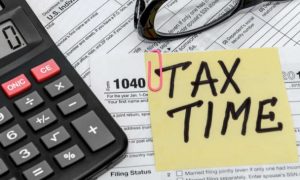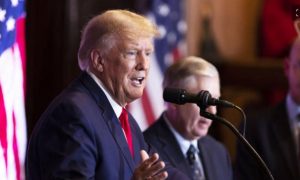Tax write-offs small-business owners shouldn’t forget
- Tax write-offs for small-business owners can be confusing.
- Four founders shared which expenses they wrote off for their businesses.
- Technology, rent, and travel are among the most important, founders told Insider.
Also Read– $78 Million Available in Small Business Grants Across America

1. Business equipment
Anything that you use to run your business could be a tax write-off, or an expense that can be claimed as a deduction to lower your taxable income, four small-business owners told Insider.
Also Read– TikTok Fined $16M By UK Commissioner Over Children’s Data Breaches
This includes all materials you purchase throughout the year to create your products or offer your services.
For example, Lucia Diaz, the founder of the eponymous Latina-focused art company, said the paper she used to create her stationery and cards, printer ink, shipping labels, packaging supplies, and business cards all qualified as write-off expenses.
Also Read– Covid’s Origins Can’t Be Tied to Wuhan Market, Chinese Researchers Say

2. Technology
Diaz also writes off the technological devices she buys to run her business, such as her phone, iPad, and MacBook Pro. Similarly, Nicole Lewis, the founder of an arts-and-crafts Etsy shop, said large equipment could be written off.
Read More:-9 tips to boost cell signal on Android and iPhone
“It is important to note that some large equipment, including computers, is not a one-time type of deduction,” Lewis wrote in a follow-up email. “A percentage is taken as a deduction over several years,” which is why it’s best to consult with a tax professional to understand exactly what can be counted, she added.
Lewis also spends money on iCloud storage, digital apps, subscriptions, and software that can range from a one-time purchase to a yearly subscription, which can all be written off, too.
Lastly, both Diaz and Lewis sell their products on Shopify, which charges fees and startup costs that can also be written off.
Read More:-Small Businesses Add 111,000 Jobs in March, ADP Reports

3. Marketing expenses
Marketing expenses can also be write-offs for small-business owners.
Also Read– China Built a Hypersonic Generator That Could Power Unimaginable Weapons
For example, Lewis sends samples of her product that can be used for wholesale accounts, gift baskets, photography props, media gifts, and celebrity party favors, she said. These offerings help her business land media appearances or social-media shout-outs. Additionally, she’ll claim the cost of the materials and shipping on her taxes, she added.
Similarly, Nichole Sesti, the founder of the vintage store The Niche Shop, writes off the money she spends on paid advertising and influencer marketing on Instagram and TikTok.
Read More:- Donald Trump’s indictment: Our reporters dig into the repercussions for 2024

4. Travel expenses
Since Sesti sources the inventory for her shop from around the world, she writes off the costs of airfare, lodging, and food for her business trips.
Also Read– Elon Musk Calls to Stop New AI for 6 Months, Fearing Risks to Society
Similarly, Cody May, a digital nomad and real-estate marketer, writes off travel expenses for any business conferences he attends.
Even local business trips that require only a tank of gas or visits to the post office can be written off, Diaz said. She uses the QuickBooks Online mobile app to track where she drives for business-related errands and meetings.
Read More:- 5 Mistakes That Financially Literate People Never Make

5. Rent and utilities
Rent and utility expenses for home offices can be another write-off for entrepreneurs, Diaz and Lewis, who both work from home, said.
“Any portion of your home that you use for business, and even typical bills like electric and water, can be write-offs when filing,” Lewis added.
Read More:- Trump’s indictment in New York: Here’s what to know
Overall, Diaz said the most important thing was to speak with a certified public accountant or financial advisor when determining which expenses you can write off. Be sure to find a professional who understands your values and business model to best prepare for the future, she added.































